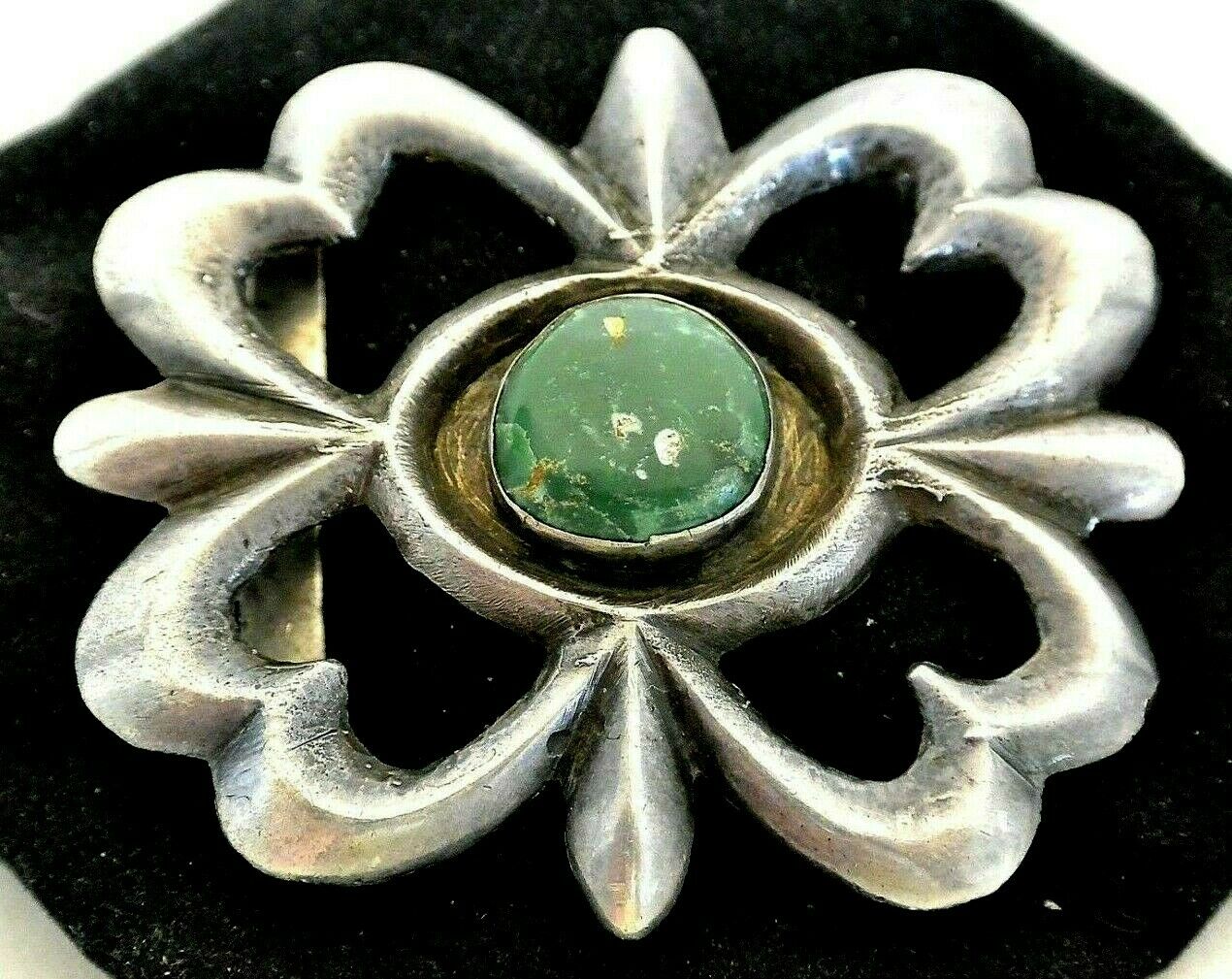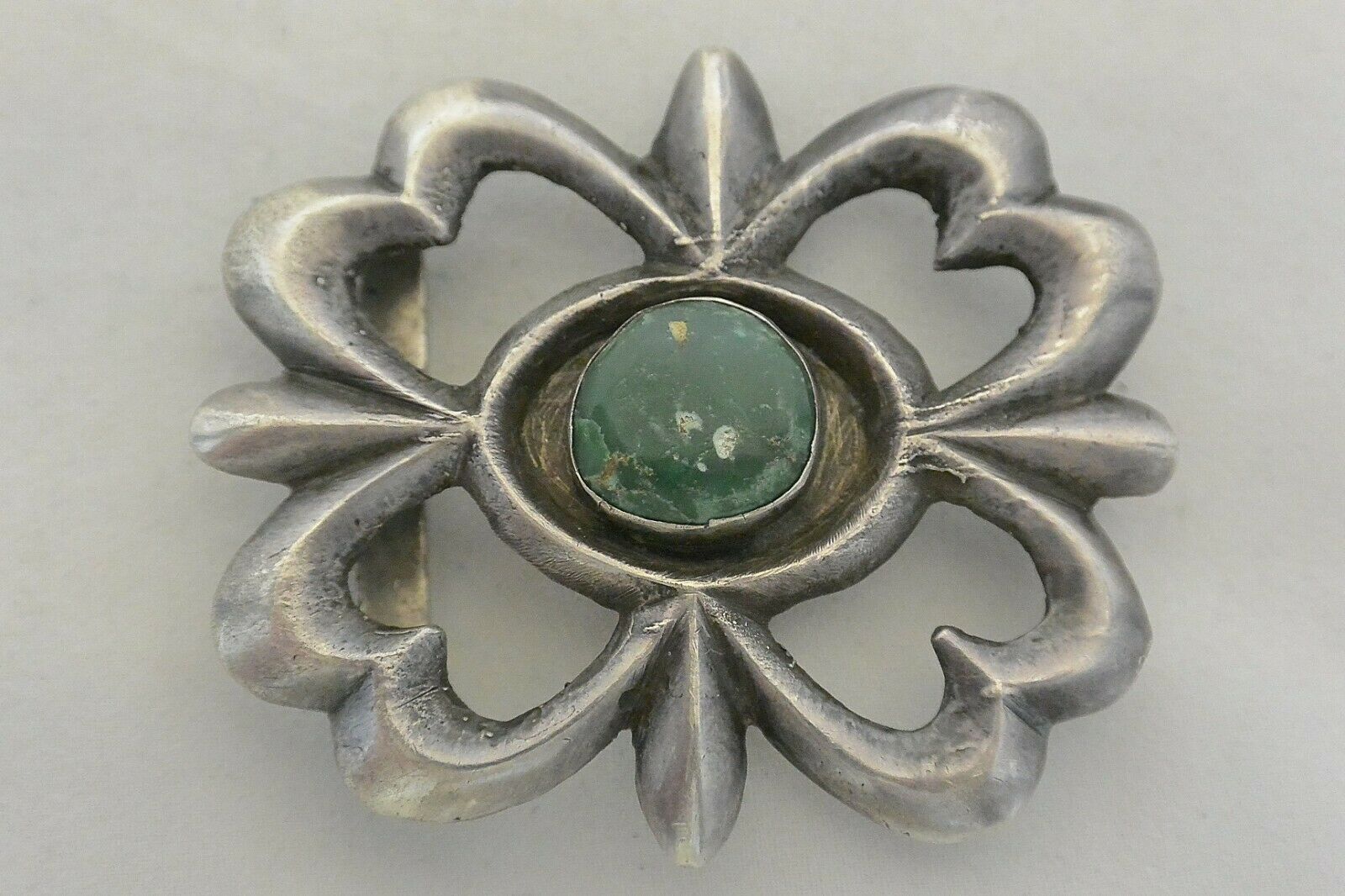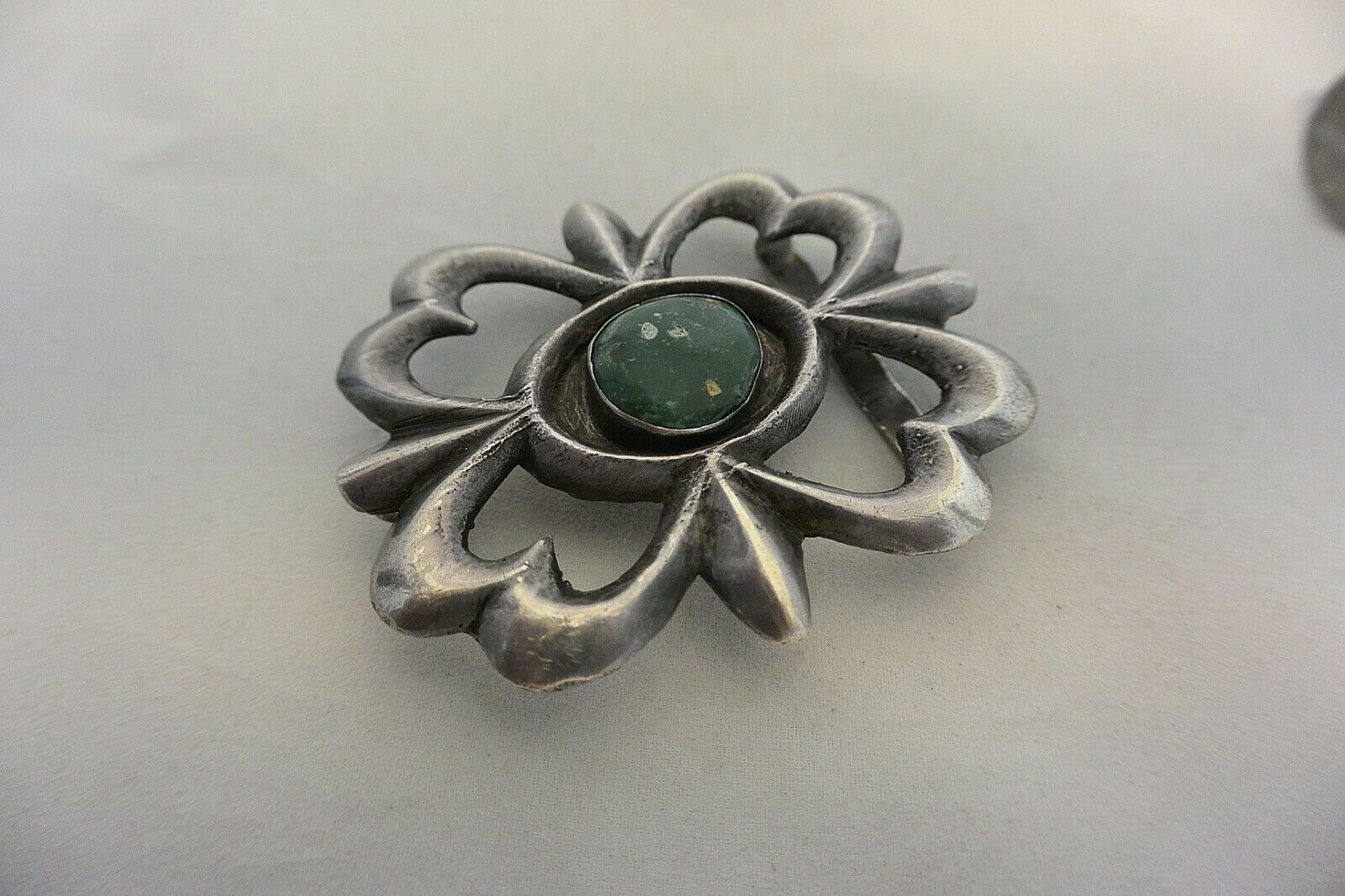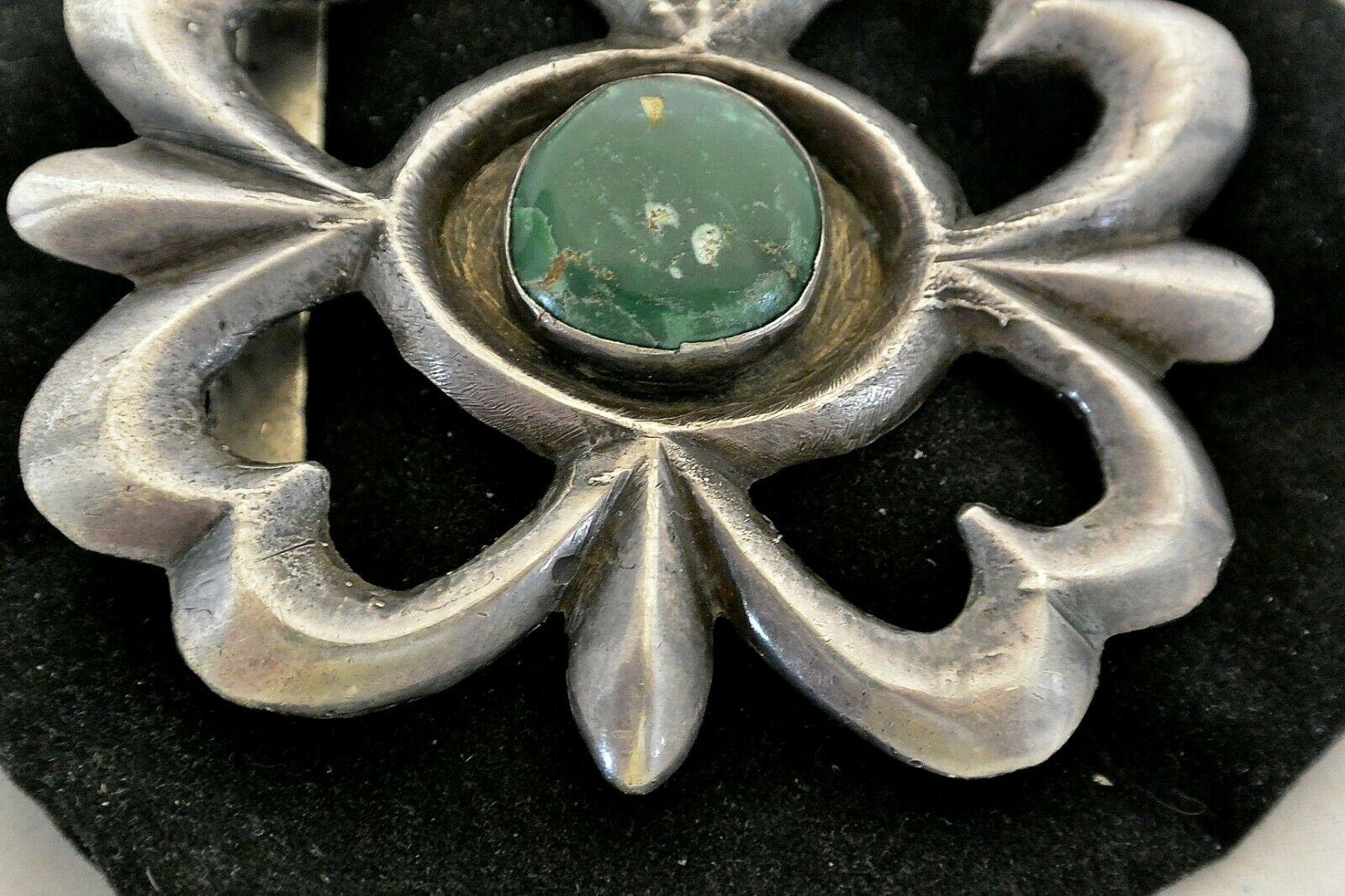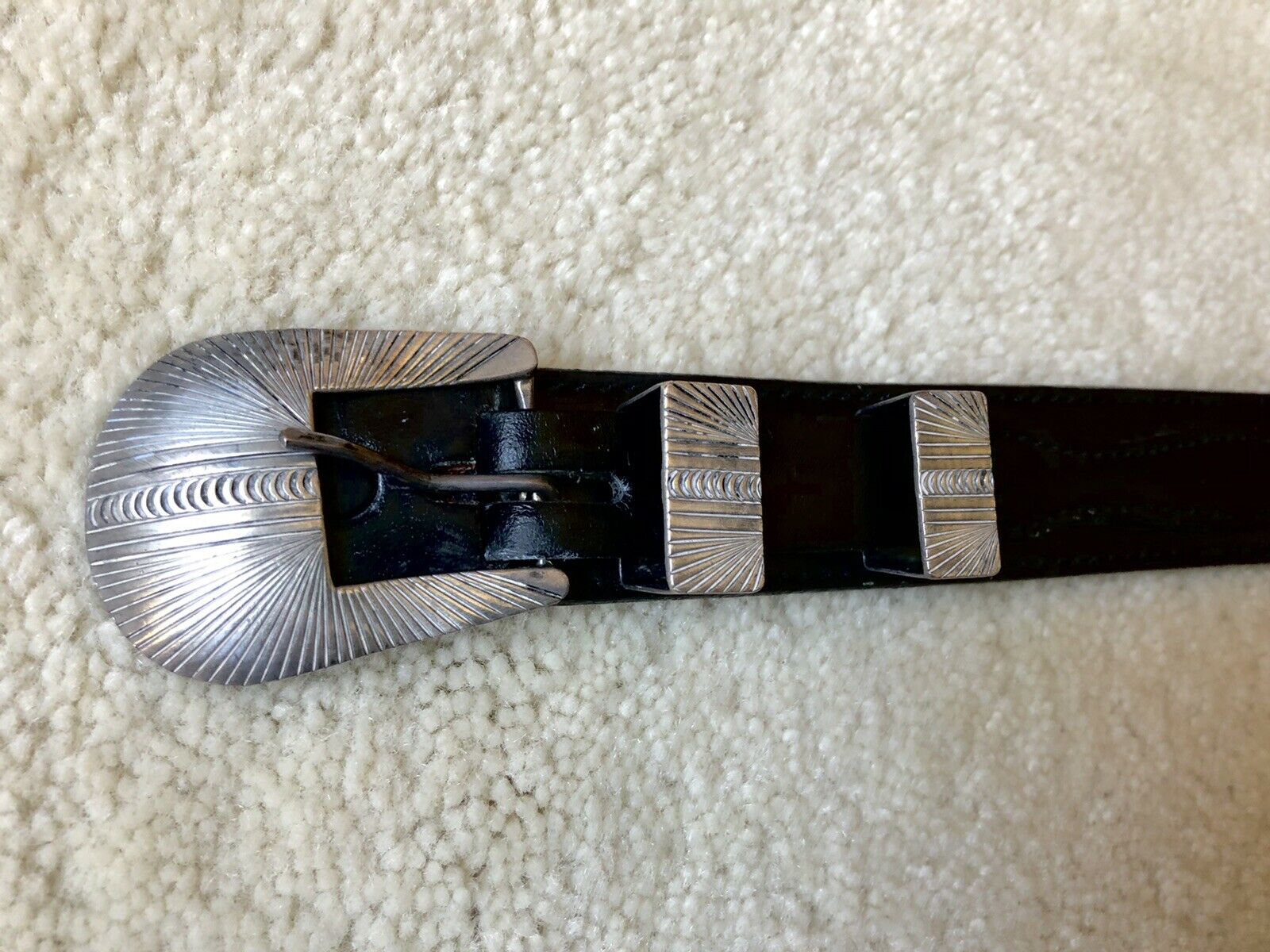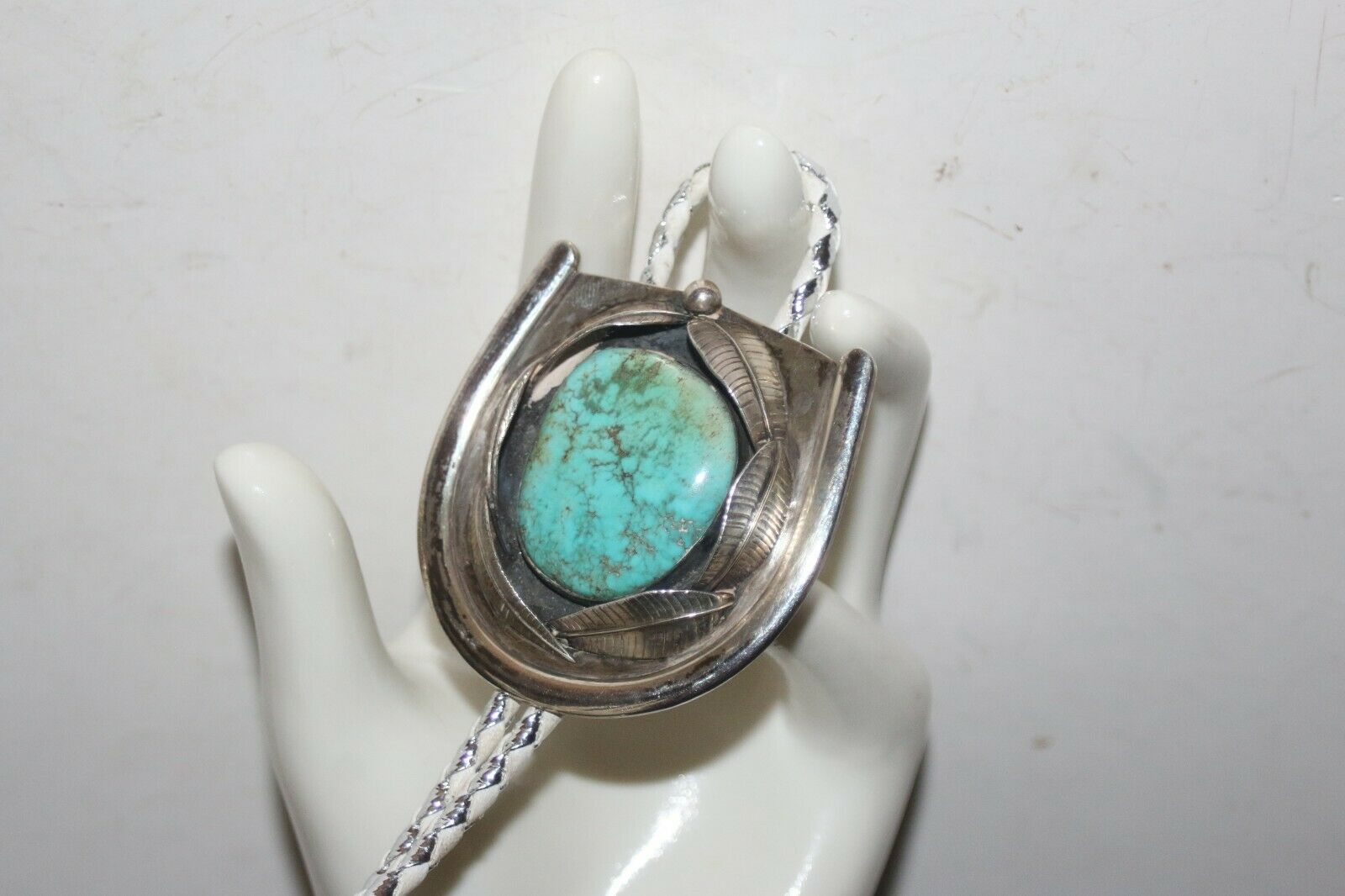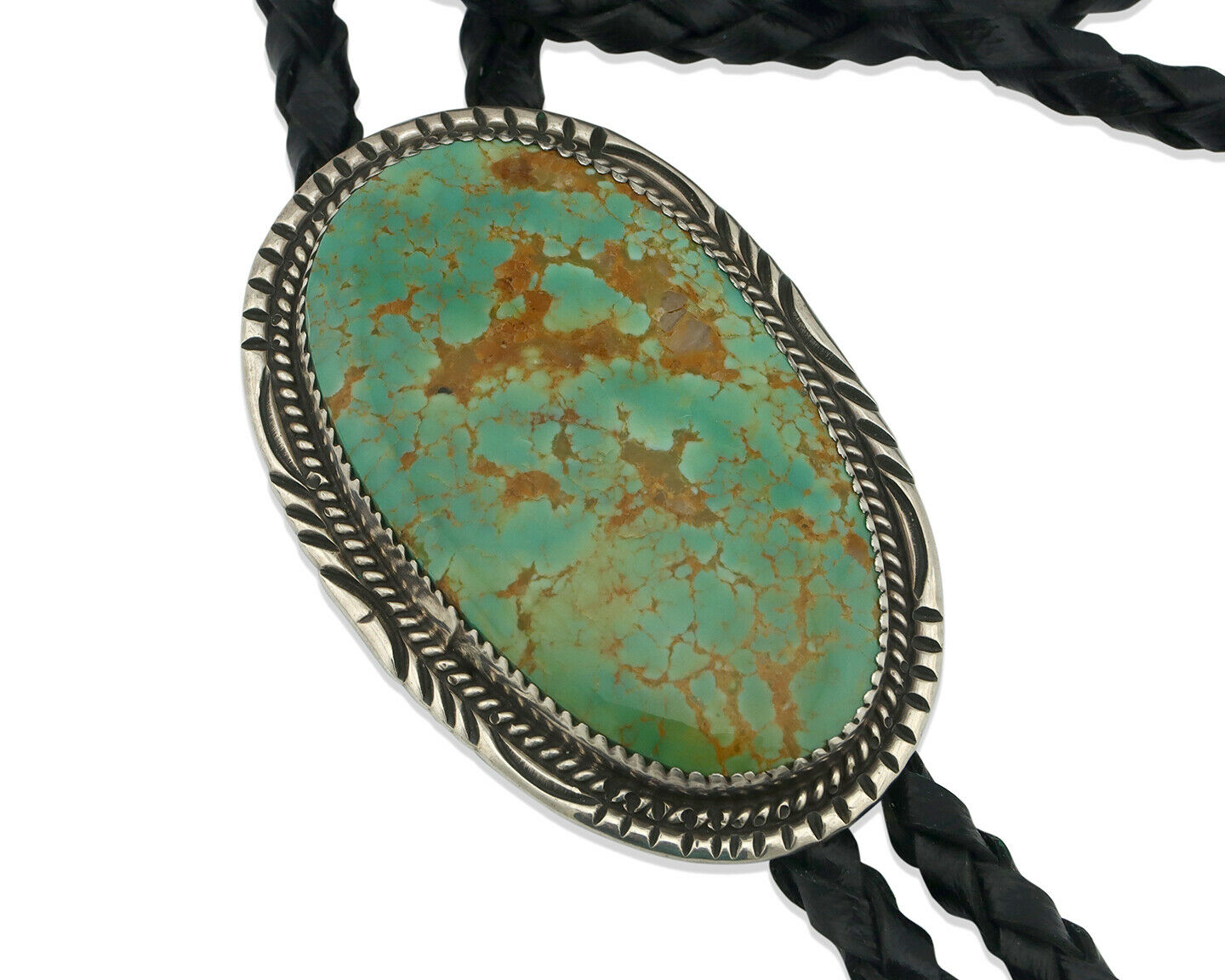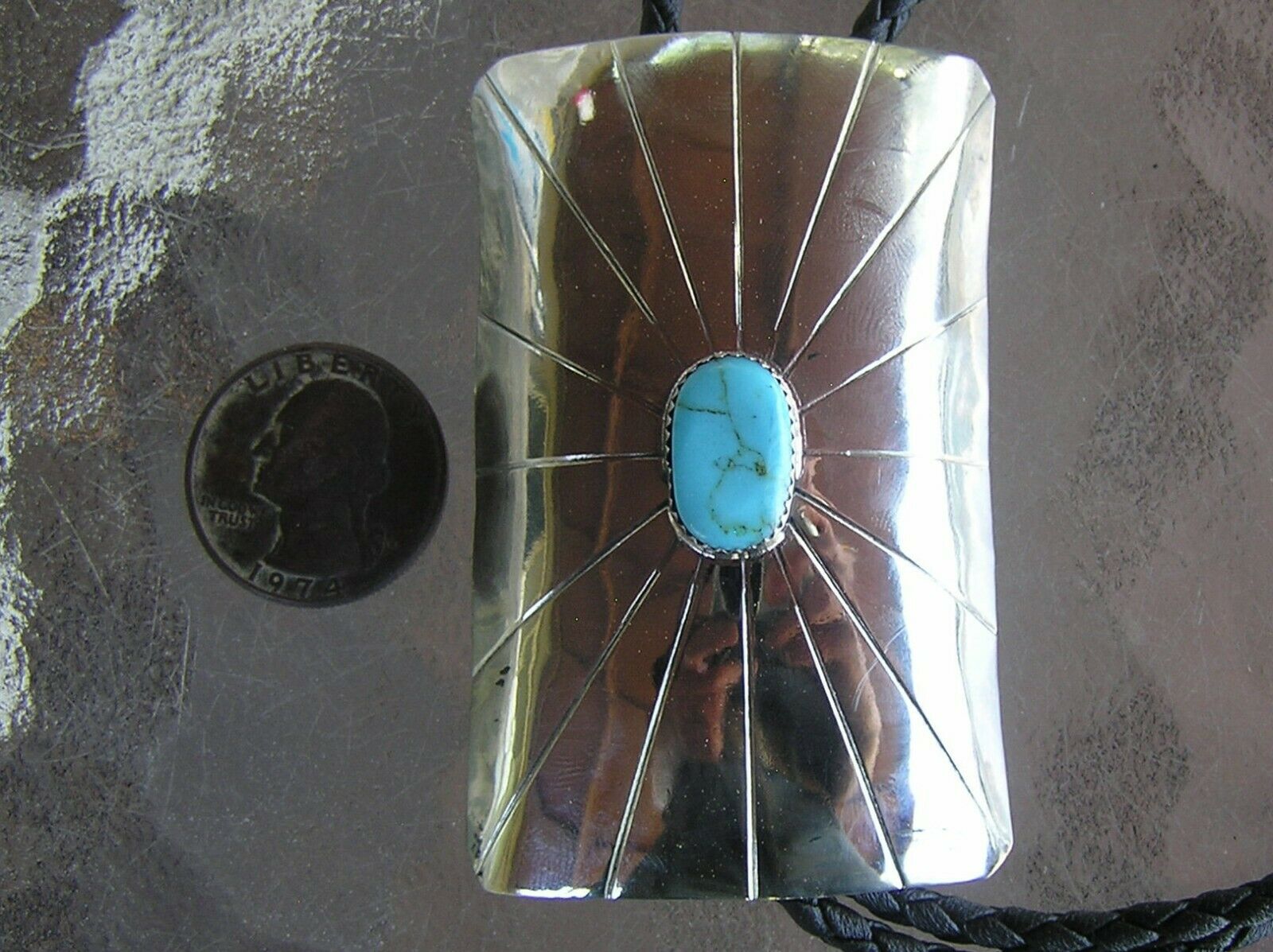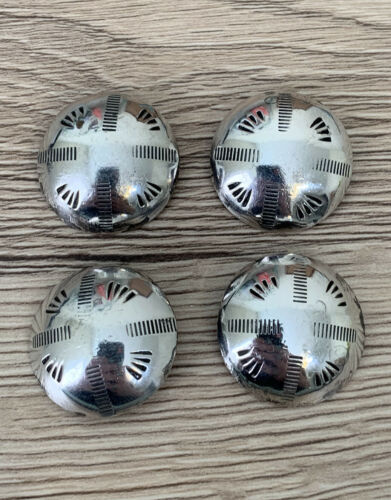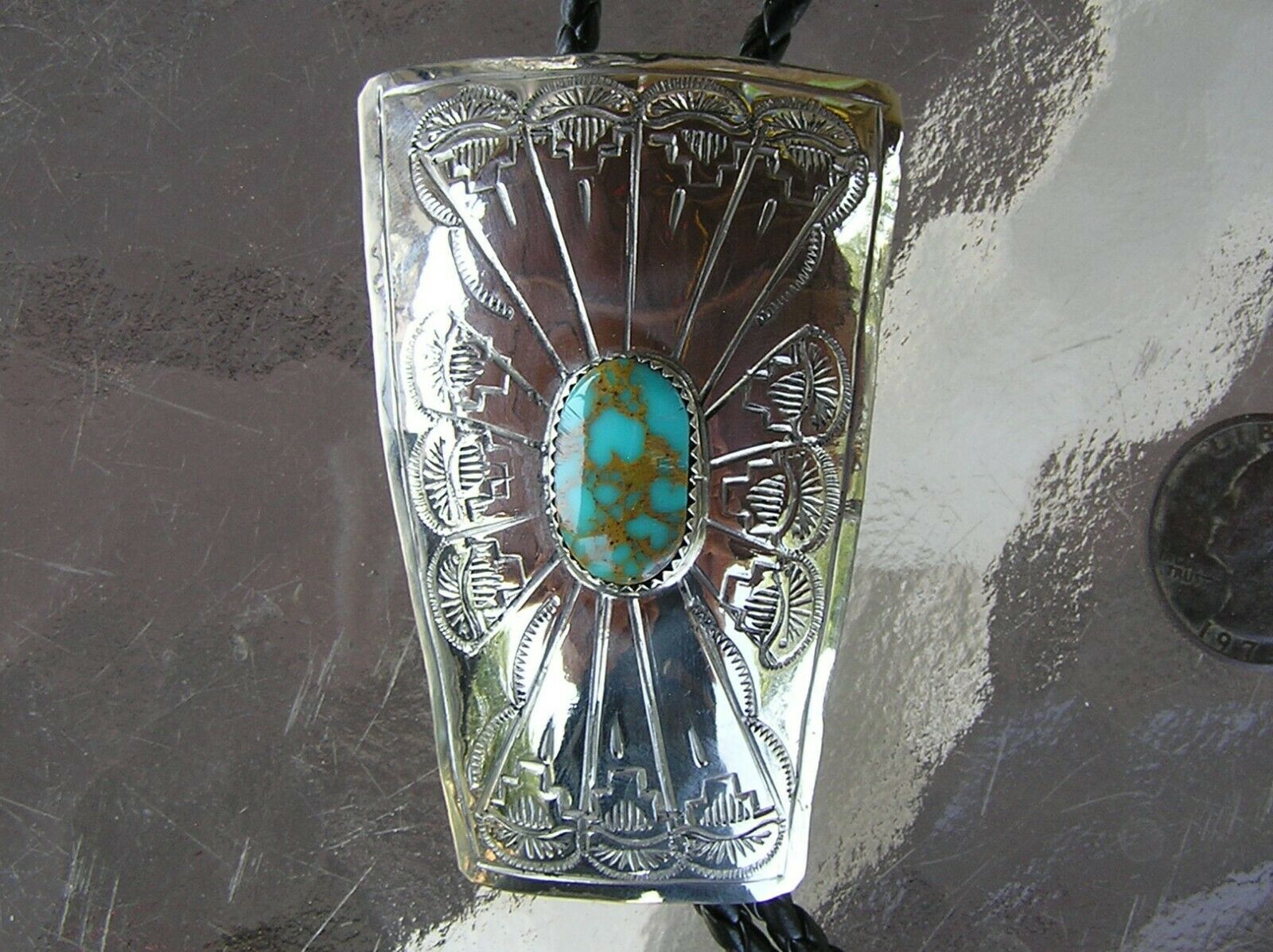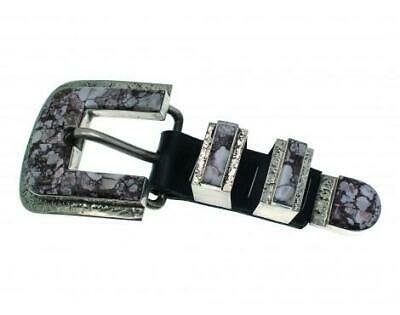-40%
Lg. Navajo BELT BUCKLE TUFA SAND CAST Sterling Silver CERILLOS TURQUOISE KETOH
$ 96.94
- Description
- Size Guide
Description
Navajo Tufa Cast Belt Bucklewith Classic "Ketoh" Navajo Archers Wrist Guard Design
Sterling Silver & Rare Cerillos MineTurquoise Cabochon
Dimensions
2.7" X 2.32
"
will accept a belt of up to 1.3"
47.3 grams = 1.52 Troy ounces
(all measurements are approximate)
The US Quarter (.95"=24mm) and Bill (2 5/8"=66mm) X (6 1/8"=155mm) is for scale
Navajo Tufa Cast Sterling Silver Belt Buckle
T
his Buckle was made by a talented Navajo artist using the
Molton Sterling Silver Tufa
Casting Technique to create a very beautiful Belt Buckle. It demonstrates the classical traditional skills in both design and jewelry construction. It is Not Hallmarked, and that is common, especially for jewelry made before 1970. I am not certain about the origin of the stone, I think it is only the second rare Cerillos Mine Turquoise that I have ever traded over the years.
T
his buckle looks to be lightly used and only has the type of surface scuffing associated with being worn by a careful owner over several decades. It has an old style fixed bracket for the belt that is not perfectly flat. That will not be seen or affect the operation of the belt. There are no dents, cracks, or noticeable scratches, etc. in the Buckle. Take a close look with the magnifier on the picture program.
As you may already know Tufa Casting is a very laborious and even dangerous process of making silver jewelry that was developed late in the 19th century by the Navajo. It is similar to traditional sand casting but uses ancient compressed volcanic ash (Tufa) as the mold in which hot molten Silver is poured. Because of thermal shock it is typical that the Tufa mold can only be used once. After the piece is cooled, the "real work" of filing and polishing begins. Because of the factors mentioned, Navajo Tufa Cast Jewelry is relatively rare and becoming more so all the time. The technique lends a charm to anything produced and is appreciated by knowledgeable collectors of Native Jewelry.
In the 1959 publication "Indian Silverwork Of The Southwest, Illustrated" author Harry P Mera has provided us with the definitive guide to the origins, history, and techniques used by Native American jewelers. He tells us, "...Later on, when, through experience, easily worked fine-grained stones were selected (those capable of retaining clean cut impressions) ornamental casting finally came into its own. Materials of this sort, because of their friability, are apt to break down under the heat to which they are subjected so that, at best, a very limited number of castings could be made from and average mold, often, only one. After an object is cast, a great deal of work with files and other abrasives is required to obtain a satisfactory finish." Indeed, the "clean up" and finishing of the crude Sterling Silver article after is it liberated from the Tufa mold is an enormous and messy task!
The design of the Tufa Cast Silver work as seen in the buckle is what most collectors would generally call Classical Revival. This is a beautiful Belt Buckle that demonstrates the art of the Tufa Casting technique. I hope you are pleased with what you see...
As the Navajo say, "Walk in Beauty"
I ship anywhere
in the United States
for free. Insurance is included, of course...
I thank You and look forward to sharing a good experience!
Recommended Reference Books
"AMERICAN INDIAN JEWELRY I" - Gregory Schaaf - Page
"AMERICAN INDIAN JEWELRY II: A-L" - Page
"HALLMARKS OF THE SOUTHWEST"- Barton Wright - Page
THE LITTLE BOOK OF SOUTHWESTERN SILVER" - Billie Hougart - Page
"ZUNI JEWELRY" - Theda and Michael Bassman
"ZUNI THE ART AND THE PEOPLE VOLUMES 1-3" - Barbara & Ed Bell- Volume
"KNIFEWING AND RAINBOW MAN IN ZUNI JEWELRY"
"INDIAN SILVERWORK OF THE SOUTHWEST, ILLUSTRATED VOLUME ONE" - Pages 22, 57,87,+
for reference only
Buckle 23
